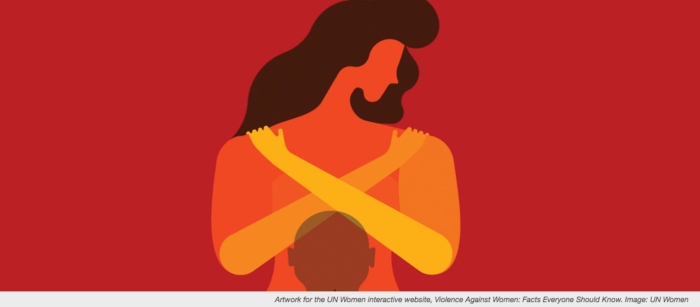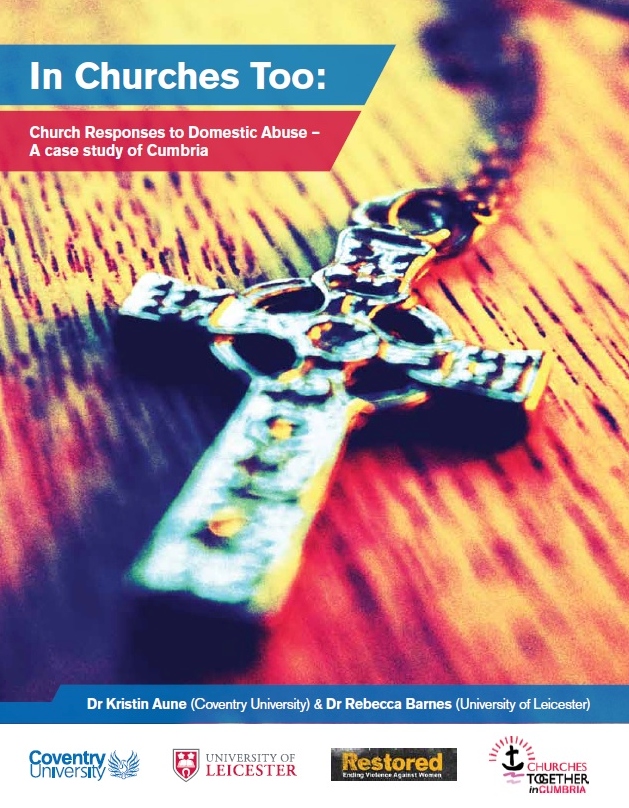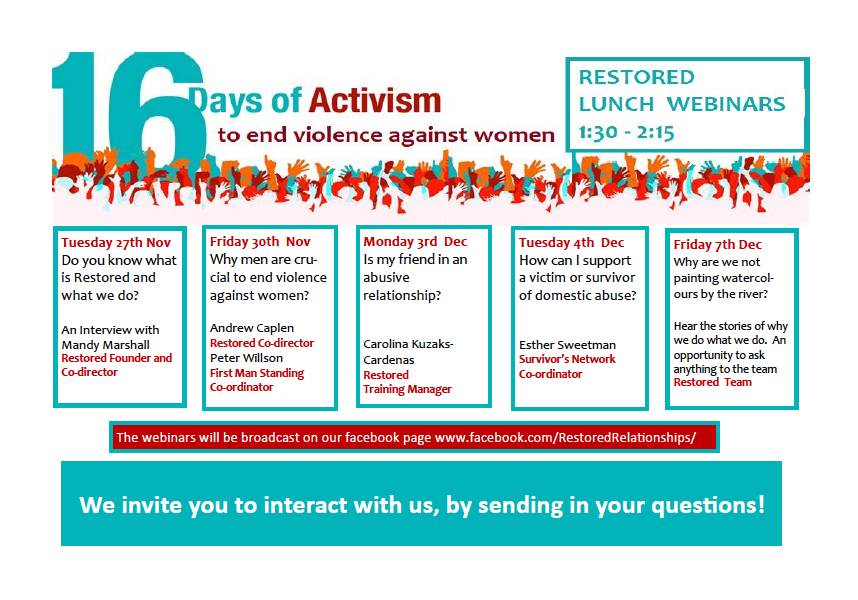A reflection on domestic abuse
There's a worldwide focus on violence against women. Andrew Caplen encourages Baptist churches to be involved in the campaign

Domestic abuse destroys lives. It leaves many women isolated, lonely and, frankly, often terrified at what sort of mood their husbands or partners will be in when they next come through the door. But why would a church-going woman suffering from domestic abuse come to see me, a solicitor, in preference to - and often before - her pastor?
I have asked myself this question a number of times over the years. Being known locally as a Christian solicitor meant that I would often be contacted to advise on church trust deeds and building projects and the suchlike. Ministers might also phone and ask if I could see such and such a person and give some general legal advice. I would be pleased to do so. After all, I was a partner in a law firm and legal work was how I earned my living.
However, when it came to domestic abuse, the approach was often different. Yes, some pastors would contact me and, without disclosing details, say that I might “receive a call from ‘X’ and would I mind having a chat with her?” More often though a Christian woman would contact me direct.
Why was this? Why did they not speak to their pastor first? It was rarely because they wanted to maintain a facade of belonging to a ‘perfect family’. Rather, it was generally because she did not know how her pastor would react.
Or, then again, perhaps she did. Could it have been that so often the message that she had heard at church had led her to believe that sharing her pain would only make matters worse? Perhaps because she knew that she may well have to leave her marriage and yet felt that she might be counselled to remain within an abusive relationship? Was she concerned that “in sickness and in health” might be construed to include “in situations of domestic abuse” too? Sometimes people do not want to ask a question if the answer that they expect to be given is even more unbearable.
In the last couple of years the issue of violence against women has been increasingly ‘front page’. The Harvey Weinstein case was followed by “MeToo”, a campaign that shows no sign of grinding to a halt. Domestic abuse and violence issues often make the national news. Both awareness and concern are growing within the national consciousness.
Government statistics clearly indicate that violence against women is far from being a marginal, insignificant issue. Figures from the Ministry of Justice indicate that one in four women within the UK have suffered from some form of domestic abuse/violence during the course of their lifetime and that one in five women aged 16-59 have experienced some form of sexual violence since the age of 16.

Domestic abuse - in churches too
Our churches are not immune. Recent research commissioned on behalf of Restored and Churches Together in Cumbria indicates that one in four of the women surveyed had experienced at least one instance of abusive behaviour in a current relationship and that 42.2 per cent had experienced at least one instance of abusive behaviour in a current and/or previous relationship on at least one occasion.
This is clearly an issue which affects the church in the UK just as much as the country as a whole. To suggest that domestic abuse does not exist within our churches, that it only happens elsewhere to ‘those outside’, is to ignore the reality. Where there is a failure to both recognise the issue and its seriousness then the result is that the Church cannot speak into, be part of, the answer to one of the most serious and prevalent of social issues.
Sunday 25 November marked the UN International Day of Elimination of Violence against Women. It was also the commencement of 16 Days of Activism against Gender Based Violence, the world's longest-running campaign for women's rights and has been designated ‘White Ribbon Day’ (originating in Canada, the ‘White Ribbon Pledge’ is led by men who campaign to take the responsibility in addressing male violence against women and girls. Wearing a white ribbon states loudly and clearly that the wearer will never condone, take part in or remain silent about violence against women).
How then can Baptist churches respond in a godly way?
Firstly, pastoral sensitivity should be a fundamental. Secondly, each church should know which agency to refer to in what is often a safeguarding issue. Teaching and action must then go ‘hand to hand’ - where would Jesus be in all this? Because surely our churches should be a safe place, a haven, for the sake of both those women within our churches and those outside?
This is not a time for closed eyes. Involvement in the 16 days of Activism would be a good start.
Image | Artwork for the UN interactive website, Violence Against Women: Facts everyone should know | UN Women
Andrew Caplen is co-director of Restored. From 2014 until 2015 he was the President of the Law Society of England and Wales and as President led a national 'Access to Justice' campaign focusing on issues relating to gender based violence.
Restored is an international Christian alliance working to transform relationships and end violence against women. Restored provides advice and resources for churches in combating the issue of violence against women. Visit its website; and follow on Twitter and Facebook.
Restored is running a series of lunchtime webinars on its Facebook page this week and next.

Baptist Times, 30/11/2018